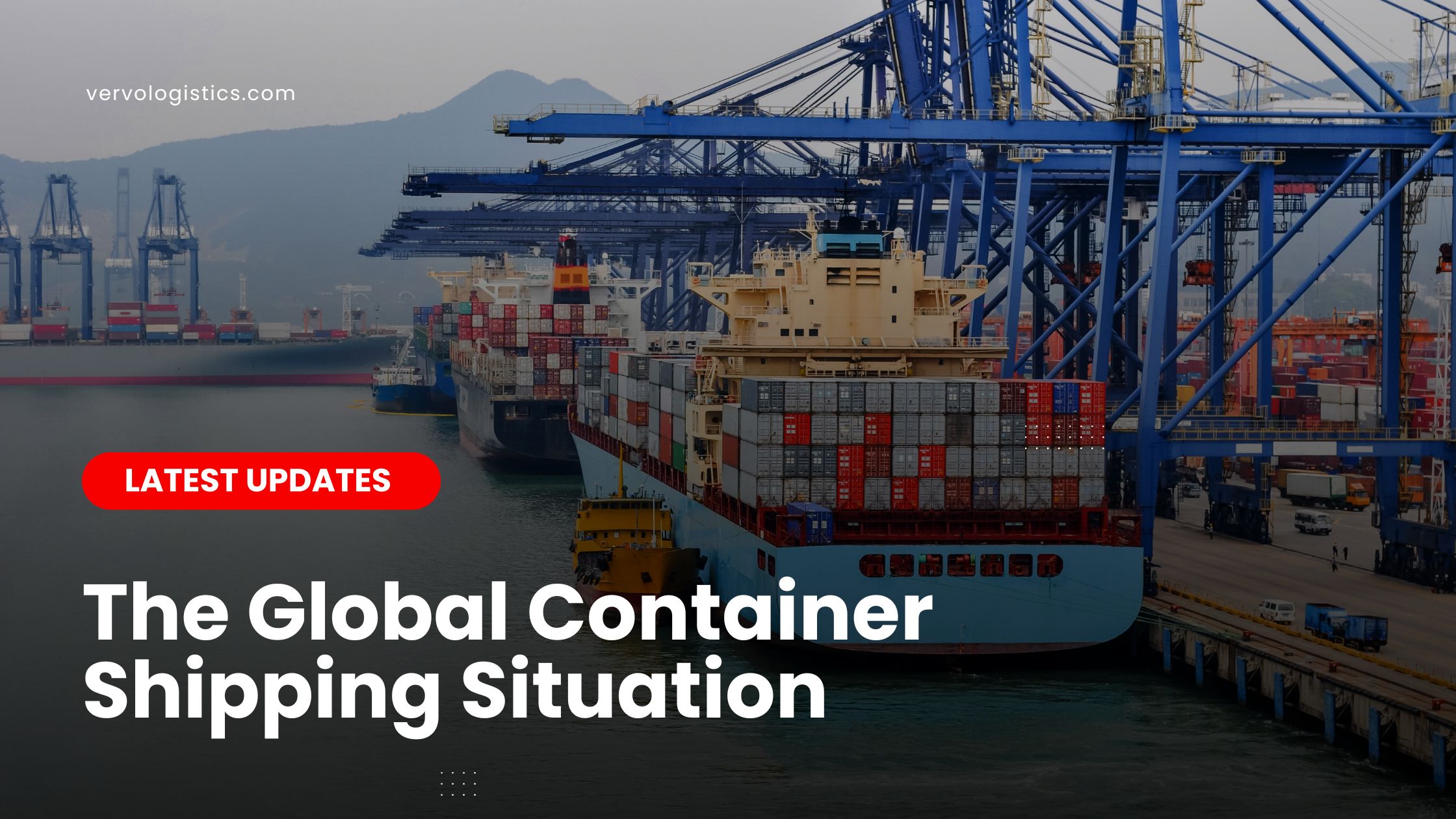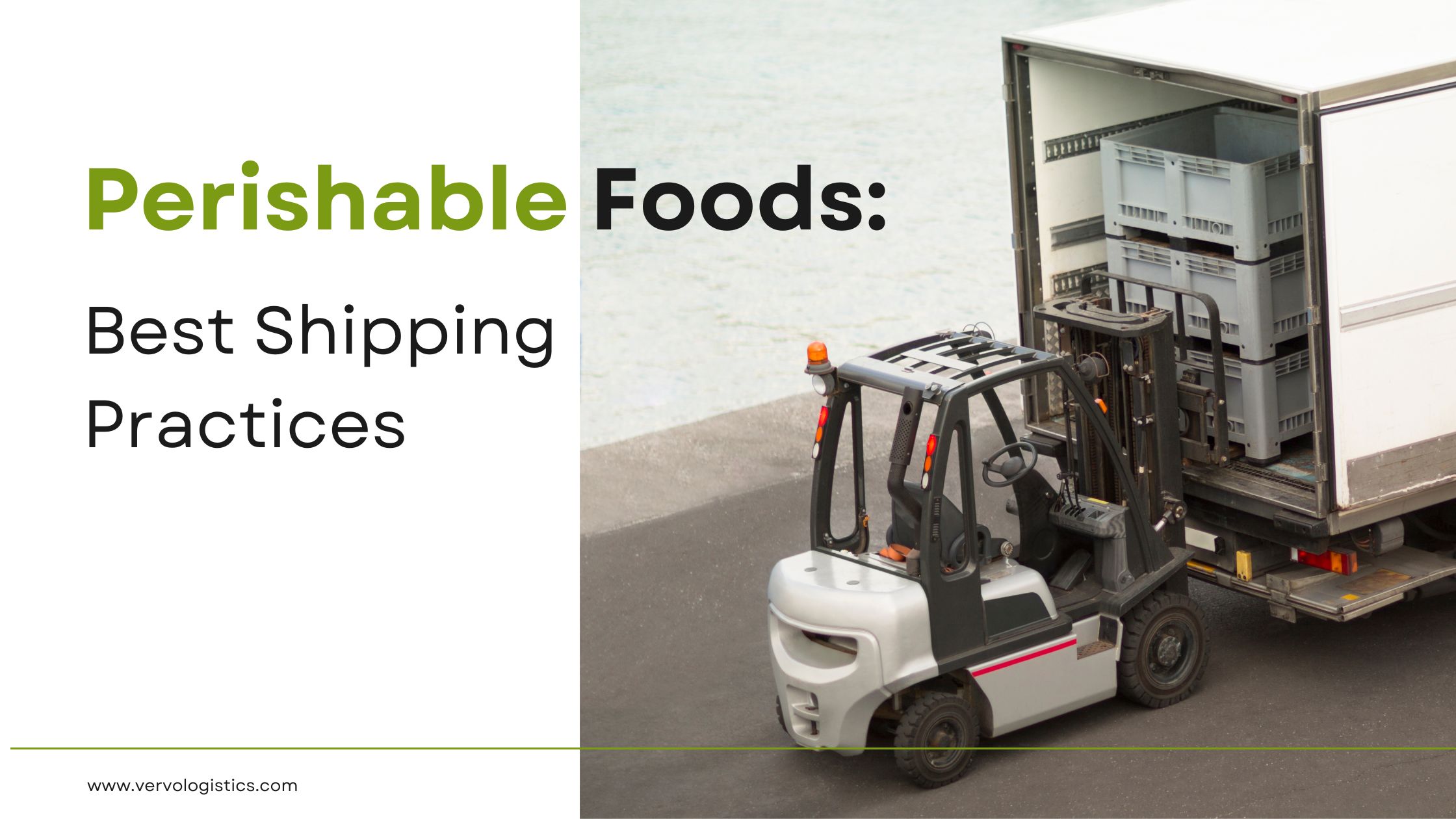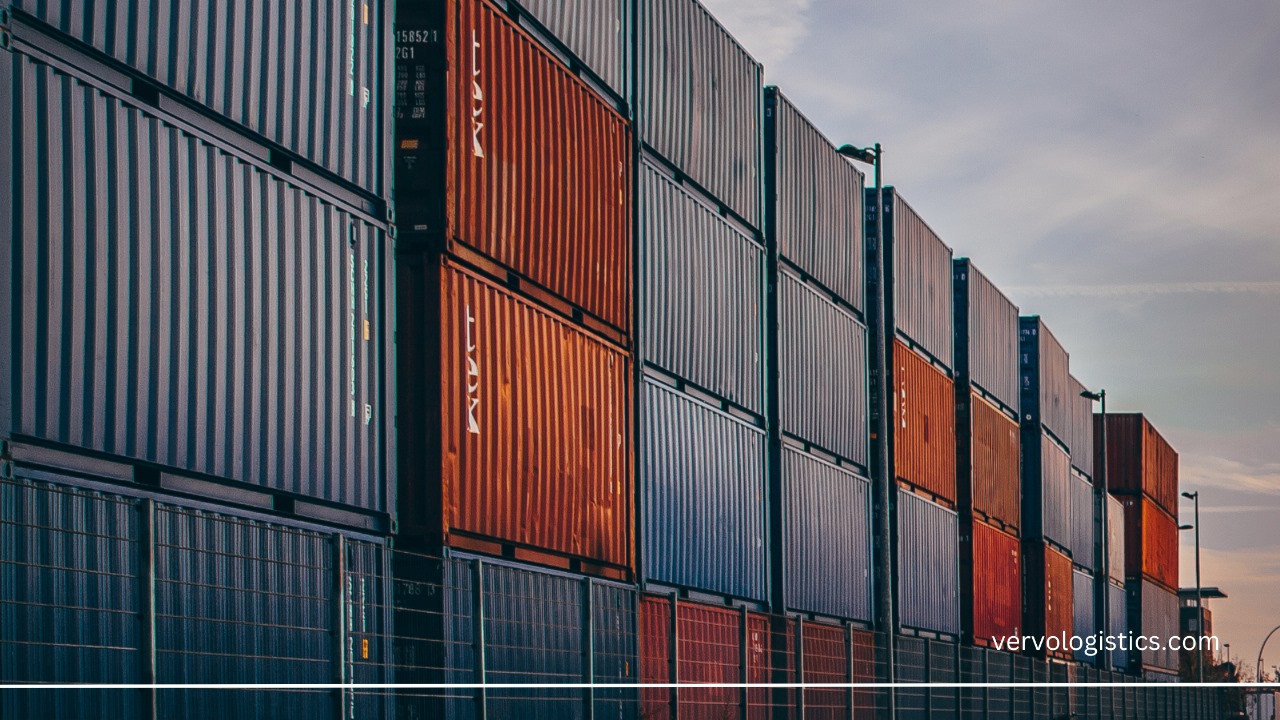The container shipping industry in the UAE is a complex and fascinating world that most shippers don't know much about. In this article, we'll take you on a journey through the fascinating world of container shipping in the UAE, exploring the many aspects of this dynamic industry and revealing some surprising facts and figures along the way.
- The UAE's role in global container shipping
- The country's ports, logistics infrastructure, and shipping companies
- The challenges and opportunities facing the industry
- The impact of new technologies and changing global trade patterns
By the end, you'll have a better understanding of the crucial role that the UAE's shipping industry plays in the global economy and how it has become a powerhouse and a major force in the world of container shipping. So buckle up and get ready to discover the secrets of the UAE's container shipping industry!
What You Don’t Know About the Container Shipping Industry in the UAE
The container shipping industry in the UAE is a vast and intricate web of logistics and transportation that powers international trade between Asia, Europe, and Africa. Many people don't realize just how crucial the UAE's shipping industry is to global commerce, with the country serving as a vital hub for goods moving between these three continents. In fact, the UAE is home to some of the busiest ports in the world, including the Port of Jebel Ali, which is one of the largest man-made harbors in the world and can handle millions of containers each year.
But the UAE's shipping industry is not just about moving goods by sea. It also involves complex logistics and transportation networks that span multiple modes of transport, including trucks, trains, and airplanes. This is because the movement of goods often requires a multi-modal approach, with containers being transported by ship, then by truck or train, and finally by air if needed. The UAE's sophisticated logistics infrastructure makes it possible for companies to seamlessly move their goods between different transportation modes, ensuring that cargo reaches its destination quickly and efficiently.
Another fascinating aspect of the UAE's container shipping industry is the variety of cargo that it can handle. From large, heavy machinery to delicate electronic components, the UAE's ports and logistics networks are equipped to handle a wide range of cargo types and classifications. This versatility has made the UAE a preferred destination for many companies looking to move their goods across the globe.
The UAE has received several global awards and recognitions for its container shipping industry. This significant recognition demonstrates its efficiency, innovation, and contribution to global trade. Some of those awards and recognitions include:
- The Port of Jebel Ali, which is located in Dubai, has been ranked as the ninth busiest port in the world by the World Shipping Council.
- The Port of Khalifa, which is located in Abu Dhabi, has been recognized as one of the most efficient ports in the world, ranking first in the Middle East and third globally in the International Association of Ports and Harbors' (IAPH) Productivity Index. Moreover, last year, Khalifa Port earned a spot among the top five ports in the Container Port Performance Index (CPPI) by the World Bank and S&P Global Market Intelligence.
- DP World, a Dubai-based port operator that manages several ports in the UAE, has been named the "Best Port Operator" at the 2019 Maritime Standard Awards.
- The UAE was ranked 11th globally in the World Bank's 2020 Logistics Performance Index, which measures the efficiency of the logistics industry in countries around the world.
Overview of the UAE's Leading Role in Global Container Shipping
The UAE plays a vital role in global container shipping, serving as a key transit point between Asia, Europe, and Africa. The country's strategic location at the crossroads of major trade routes has made it an important hub for international trade, with its ports and logistics networks handling millions of containers each year.
The UAE's container shipping industry has grown rapidly over the past few decades, fueled by the country's strong economic growth and ambitious development plans. Today, the UAE is home to several world-class ports, including the Port of Jebel Ali, which is one of the largest and busiest ports in the world. The Port of Khalifa in Abu Dhabi is another major hub, offering direct connections to more than 50 destinations around the world.
In addition to its ports, the UAE also has a highly developed logistics infrastructure that includes state-of-the-art warehouses, distribution centers, and transportation networks. This allows companies to move their goods seamlessly between different transportation modes, ensuring that cargo reaches its destination quickly and efficiently.
Container Shipping Routes to and From the UAE and Port Infrastructure
The UAE offers a wide range of container shipping routes to and from various destinations around the world. But what are the most important container shipping routes to and from the UAE? What do you need to know about the port infrastructure that supports them? Here is what comes next:
Container Shipping Routes
Thanks to its strategic location, the UAE has established a comprehensive network of container shipping routes that serve major global trade routes. These routes are mainly served by the country's three major ports, which are Jebel Ali Port, Khalifa Port, and Port Rashid.
Jebel Ali Port is the largest container port in the Middle East and the 9th busiest container port in the world. It serves over 140 shipping lines and connects more than 80 ports worldwide. Some of the most important container shipping routes from Jebel Ali Port are:
- Asia-Europe: This route connects major ports in Asia, such as Shanghai, Singapore, and Hong Kong, with major ports in Europe, such as Rotterdam, Hamburg, and Felixstowe.
- Asia-Africa: This route connects major ports in Asia, such as Colombo, Chennai, and Port Klang, with major ports in Africa, such as Durban, Cape Town, and Mombasa.
- Asia-Americas: This route connects major ports in Asia, such as Busan, Yokohama, and Los Angeles, with major ports in the Americas, such as Long Beach, Savannah, and New York.
Khalifa Port is the newest and most advanced container port in the UAE. It serves over 25 shipping lines and connects more than 70 ports worldwide. Some of the most important container shipping routes from Khalifa Port are:
- Asia-Europe: This route connects major ports in Asia, such as Ningbo, Qingdao, and Xiamen, with major ports in Europe, such as Antwerp, Hamburg, and Southampton.
- Asia-Africa: This route connects major ports in Asia, such as Colombo, Singapore, and Port Klang, with major ports in Africa, such as Durban, Maputo, and Dar es Salaam.
- Asia-Middle East: This route connects major ports in Asia, such as Shanghai, Ningbo, and Busan, with major ports in the Middle East, such as Jeddah, Dammam, and Kuwait.
Port Rashid is the oldest container port in Dubai and has been recently redeveloped to meet the growing demand for container shipping. It serves over 25 shipping lines and connects more than 50 ports worldwide. Some of the most important container shipping routes from Port Rashid are:
- Asia-Europe: This route connects major ports in Asia, such as Hong Kong, Kaohsiung, and Tokyo, with major ports in Europe, such as Rotterdam, Hamburg, and Tilbury.
- Asia-Africa: This route connects major ports in Asia, such as Colombo, Chennai, and Port Klang, with major ports in Africa, such as Durban, Dar es Salaam, and Mombasa.
- Asia-Middle East: This route connects major ports in Asia, such as Shanghai, Ningbo, and Busan, with major ports in the Middle East, such as Jeddah, Dammam, and Sohar.
Port Infrastructure in the UAE
The UAE has invested heavily in developing world-class port infrastructure to support its growing container shipping industry. The country's major ports have state-of-the-art facilities, including deep-water berths, container terminals, and advanced cargo-handling equipment. For example, Jebel Ali Port has 67 berths, including 35 container berths, and can handle up to 22.4 million TEUs (twenty-foot equivalent units) annually. Khalifa Port has 9 berths, including 3 container berths, and can handle up to 5 million TEUs annually. Port Rashid has 5 berths, including 2 container berths, and can handle up to 1.3 million TEUs annually.
In addition to the ports, the UAE has also developed an extensive network of logistics services to support container shipping. These services include freight forwarding, customs clearance, warehousing, and transportation. The country's logistics industry has been growing rapidly, thanks to the government's efforts to promote the UAE as a regional logistics hub.
Furthermore, the UAE government has also launched several initiatives to support the country's container shipping industry, such as the Dubai Maritime City Authority's Dubai Maritime 2020 strategy, which aims to make Dubai a leading maritime hub, and the Abu Dhabi Ports' Khalifa Port Free Trade Zone, which offers a range of incentives and benefits to businesses operating in the port.
The UAE's container shipping industry has become a major player in the global trade landscape, thanks to its strategic location, world-class port infrastructure, and excellent logistics services. The country's major ports, including Jebel Ali Port, Khalifa Port, and Port Rashid, offer a wide range of container shipping routes to and from various destinations around the world. With continued investment and development, the UAE's container shipping industry is set to grow even further in the coming years.
The Benefits and Challenges of Container Shipping in the UAE
We will explore the benefits and challenges of container shipping in the UAE, including the impact of new technologies and changing global trade patterns.
Benefits of Container Shipping in the UAE
Cost-effectiveness: Container shipping offers a cost-effective and efficient mode of transportation for both businesses and individual shippers. Containers are used to efficiently transport goods in large quantities. They can be easily loaded and unloaded from ships, trucks, and trains, reducing the time and cost of moving goods across borders.
Access to Global Markets: The container shipping industry has enabled businesses in the UAE to access a wider range of global markets, enabling them to reach a wider customer base. creating new opportunities for growth and expansion.
Increased Competitiveness: By leveraging container shipping, businesses in the UAE can become more competitive in the global marketplace. They can smoothly source raw materials and components from different countries and markets and export their finished products to customers around the world. The business-friendly environment of the country hugely helps facilitate container chartering and shipping.
Efficiency: Container shipping allows for efficient transportation of goods, reducing transit times and improving supply chain management. This results in better inventory management and faster delivery times, enhancing customer satisfaction.
Challenges of Container Shipping in the UAE
Changing Trade Patterns: The global trade landscape is constantly evolving, and businesses in the UAE must adapt to changing market conditions and trade patterns. New trade agreements, tariffs, and geopolitical tensions can affect the demand for container shipping and create uncertainties for businesses. Also, with a shift toward e-commerce and increased demand for perishable goods, this is resulting in new challenges, such as the need for temperature-controlled containers and faster delivery times.
Security Risks: Global container shipping involves a complex supply chain that can be vulnerable to security risks such as piracy, theft, and terrorism. The UAE government has implemented several measures to enhance security, including the use of advanced technologies and collaboration with other countries.
Environmental Impact: The container shipping industry can have a significant environmental impact due to emissions from ships, port equipment, and transportation. The UAE has also been implementing several initiatives to reduce its environmental footprint and adopt sustainable practices and technologies, such as using cleaner fuels, using green port technologies, and implementing waste management programs.
Impact of New Technologies on Container Shipping in the UAE
The container shipping industry in the UAE is undergoing significant technological advancements and is rapidly evolving, driven by changing global trade patterns, which are expected to revolutionize the way goods are transported and managed. Some of the key technologies and trends impacting the industry include:
Internet of Things (IoT): IoT sensors can be installed on containers and ships, providing real-time tracking and monitoring of cargo and reducing the risk of theft and loss. This technology greatly improves supply chain transparency.
Blockchain: Blockchain technology can improve transparency and security in the container shipping industry, enabling better traceability of goods and reducing the risk of fraud.
Automation: The use of automation in container shipping in the UAE is increasing with the adoption of technologies such as autonomous vessels and robotic container terminals. This is expected to increase efficiency and safety and reduce labor costs.
Greening the Seas: UAE's Sustainable Efforts in the Container Shipping Industry
The UAE has also been focusing on sustainability and reducing the environmental impact of its container shipping industry. The UAE's sustainability efforts in the container shipping industry demonstrate its commitment to balancing economic growth with environmental protection. By promoting sustainable practices and implementing regulations, the UAE is setting an example for other countries and contributing to a more sustainable global trade industry. The ports have implemented green initiatives such as using renewable energy, reducing emissions from port equipment, and implementing waste management programs. Some of the country's sustainability efforts include:
Using cleaner fuels: The UAE has been promoting the use of cleaner fuels, such as liquefied natural gas (LNG), which emit fewer pollutants than traditional fossil fuels.
Adopting green port technologies: The UAE's major ports, including Dubai Ports World, have implemented several initiatives to reduce their carbon footprint, such as optimizing energy efficiency and implementing waste management programs.
Promoting sustainable practices: The UAE government has been actively promoting sustainable practices in the container shipping industry, such as reducing waste, conserving resources, and minimizing emissions.
Implementing environmental regulations: The UAE has implemented several environmental regulations to ensure that the container shipping industry operates in an environmentally responsible manner. These regulations include limits on air and water pollution as well as measures to prevent oil spills and other environmental accidents.
The UAE's container shipping industry has a bright future ahead with continued investment in port infrastructure, logistics services, and sustainability initiatives. As the world's economies continue to grow and evolve, the UAE's strategic location and world-class container shipping industry are well-positioned to serve the needs of global trade.
How Can Vervo Middle East Facilitate Your Container Shipping in the UAE?
Container shipping is a vital component of the global trade network, and the UAE has become a significant player in this industry. The country's strategic location connects businesses to a vast network of markets and consumers. It is a significant contributor to the UAE's economy, supporting job creation, investment, and economic growth.
If you're looking to leverage the benefits of container shipping in the UAE, partnering with a reliable logistics provider like Vervo Middle East can make all the difference. With over 14 years of experience and a comprehensive understanding of the shipping industry in the UAE, our freight experts can help you navigate the complex logistics involved in container shipping, from arranging for transport and customs clearance to managing supply chain disruptions and coordinating with multiple stakeholders.
By partnering with Vervo Middle East, you can access a wide range of services tailored to your specific needs, including warehousing, distribution, dedicated containers in various types and sizes, and freight forwarding. Our advanced technologies and extensive inventory ensure that your cargo is transported safely, efficiently, and sustainably, while our experienced team of professionals provides you with the support and guidance you need to succeed in the competitive global marketplace.
In conclusion, container shipping is a critical component of the UAE's thriving trade industry. With a reliable logistics partner like Vervo Middle East by your side, you can take advantage of the opportunities this industry can offer and overcome the challenges of container shipping, achieving success and profitability in the ever-evolving world of global trade. Call us today at +971508723352 or send an email to




